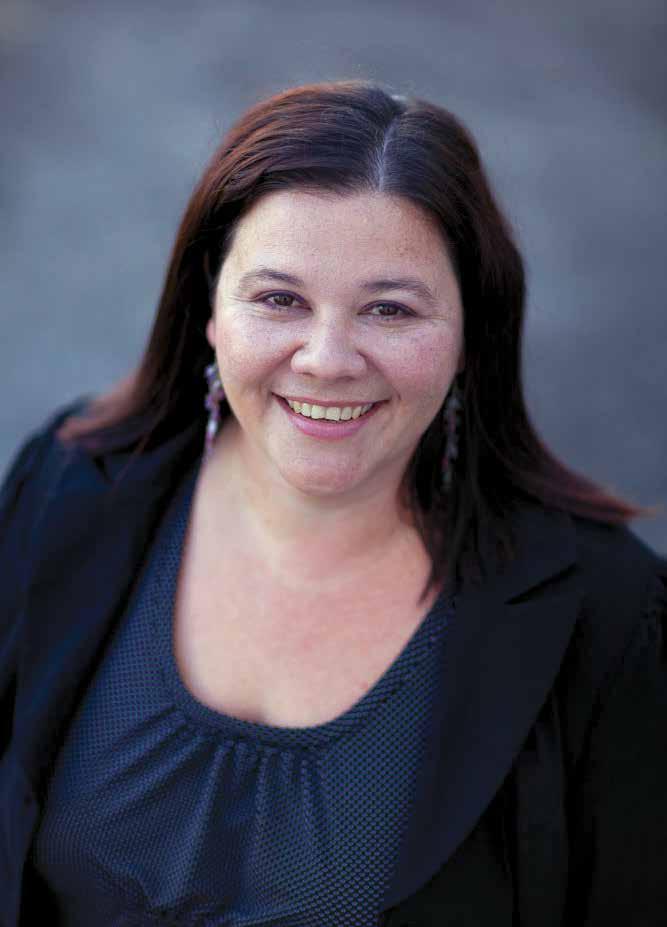
4 minute read
Welcome
Welcome to the Family Empowerment Report (FER) for January to June 2020.
The threat of the COVID-19 pandemic on our Cape York people and the ever-changing regulatory circumstances has required Cape York Partnership (CYP) to respond swiftly and think critically about how best to support and help our remote communities to protect themselves.
Advertisement
The travel restrictions enforced by the biosecurity lockdown of Cape York in March certainly highlighted the need for service delivery approaches that build place-based continuity, decision-making and local empowerment. We are one of few organisations that operate an in-community (not a Fly-In FlyOut) model so when communities locked down it was virtually business as usual, with applied social distancing measures of course. It did mean that our O-Hubs experienced additional pressures as they assisted local residents with any problem presented due to other services not being available locally. There were also more than 60 families displaced from Aurukun during unrest in January that presented challenges for their return to their community.
The pandemic has also emphasised the need to respect local voice and for all stakeholders to work collectively to ensure that all efforts are effective in reaching Indigenous people and enabling real impact in their lives and futures.
At the outset of the COVID-19 lockdown, we identified two major issues of concern, one around the provision of culturally appropriate quarantine facilities and also access to affordable food. With our boarding students returned home we were able to offer our facilities at Djarragun College and the Girl Academy to the State government to provide supported quarantine with the very important support of Ngak Min Health onsite.
CYP has been acutely aware of the problems with access to affordable and healthy food through all Cape York stores for many years. Our repeated attempts to seek reform of the current system with the Queensland Government had fallen on deaf ears and while we continue to support the case for structural reform we realised that practical on-the-ground action is essential. The lockdown meant that many Cape York families that would otherwise rely on accessing affordable groceries in regional centres via a lengthy round trip would now be hostage to their local store. CYP moved quickly since March to develop a pilot food box program called the Mayi Market–Mayi meaning vegetable or food from plants in multiple Cape York First Nation languages.
The Mayi Market is an online no-frills food box social enterprise working in collaboration with Far North Queensland purveyors of local fresh produce, to deliver quality fresh food to remote Cape York Indigenous communities at regional mainstream prices, such as Cairns. We commenced delivery to Hope Vale in May, and then expanded to Coen and Wujal Wujal. In the first two months of operation three communities with a total of 389 Indigenous families purchased more than $46,000 in fresh fruit, vegetables, meat and eggs. This year, after a significant period of co-design with Cape York Traditional Owners, CYP launched Homelands, a collective family savings scheme for expenses associated with ancestral lands. With land title being restored to Indigenous people comes a variety of expenses such as rates. Through Homelands, families are supported to come together and collectively save for common goals. The product has similar attributes to Student Education Trust (SET), where money is saved for a shared goal and locked away for specific expenses. Our families through SET continue to hit remarkable milestones this year. In Coen, the small community of 82 Indigenous families, has contributed more than $1M to-date towards their children’s education since SET commenced. This showcases an incredible dedication to their children’s education with their money being spent on books, uniforms, camps, and educational materials for school and home.
On the school front I am particularly pleased to report that Djarragun College provides more Vocational Education Training options than any other secondary school in our region—with 13 courses on offer. We are getting our students work ready with valuable qualifications, real life work possibilities and experiences that provide students with a window into their future.
These opportunities for our Indigenous students are particularly valuable as Australians nationwide potentially face a decade of economic and job uncertainty due to the pandemic. We believe this new normal requires a different approach to employment and Cape York Institute and CYP founder, Noel Pearson, has been working with William Mitchell, Professor of Economics at the Centre for Full Employment and Equity at the University of Newcastle, on the development of a sweeping new approach to job creation and unemployment benefits. We believe the Australian National Cabinet has this moment in time to restructure both our economy and society by replacing the old default solution of welfare with the solution of a guaranteed job opportunity available to all who need an entrylevel job. We have approached the Prime Minister to adopt an Australian Job Guarantee to tackle the new reality of entrenched high jobless rates and a spiralling economic outlook. Every Australian who is able to work would be given a job at the minimum wage under the Job Guarantee. They would not be idle or on welfare, but instead engaged in meaningful work. The policy is underpinned by the belief that the best welfare to work program is to provide a job opportunity for everyone who needs one.
Before I sign off I’d like to take this opportunity to commend the new community Councils in Cape York on their leadership and decisive action around the pandemic, and their endurance. There is no greater need to work together to ensure our communities are safe and well.
FIONA JOSE | CAPE YORK PARTNERSHIP










